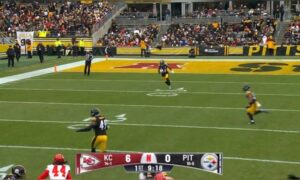The topic of medical marijuana has come to the fore in recent months within NFL circles in large part due to the outreach efforts of former Ravens and current free agent offensive tackle Eugene Monroe, who has publicly campaigned to lift both stigmas and restrictions from a substance that he believes can be invaluable to his peers in the league.
Having funded some research into medical marijuana, and specifically cannabinoids, there is some hope that some within the NFL, and of more immediate importance the NFLPA, are at least begin to perk up and take listen, which is an important first step in bringing about any sort of meaningful change.
While recreational marijuana remains illegal in all but two states, more than half of the country does allow some sort of medical marijuana, including important NFL states such as Pennsylvania, Ohio, New York, New Jersey, California, Illinois, and elsewhere, including Washington D.C.
Early in June, it was reported that a conference call was held between the organization to which Monroe donated and two of the league’s key officials pertaining to player health and safety, a call that they requested in order to gain information about what it is they were doing.
Marcel Bonn-Miller, a member of that group, at the time said that “they are interested in learning more about the potential for cannabinoids to help current and former players, as is evidenced by them taking the call, and also expressed a desire to learn more”.
He went on to say that “they are definitely showing genuine curiosity” rather than “throwing up roadblocks”. It goes without saying that getting all parties to listen is a key ingredient in anything moving forward, and recently it has been the NFLPA opening up their ears to what might be said in favor of supporting research into the pain management and neurological implications of cannabinoids.
A recent article from late last month noted that Bonn-Miller also spoke with Nyaka Niilampti, who is the union director of player wellness, and obviously a key figure in the discussion if the NFLPA is to have anything to say in the future about medical marijuana.
As with the NFL earlier in the month, the conversion was also initiated by the NFLPA, and for similar purposes, to “discuss the parameters of the studies and to learn of the research that has been done on [cannabidiol]”.
Bonn-Miller said that there is more at stake in communicating with the players’ union at the moment than with the league “because they’re the ones from whom we need help”. The players and their representatives first must reach the conclusion that this research is to their benefit before they can begin to take it to the NFL on the researchers’ behalf.
The fact that both the NFL and NFLPA have opened their ears to this discussion, however, is an exciting step in and of itself, even if we might not expect there to be much movement on any front in the near future. Still, it at least opens the door to possibilities.






